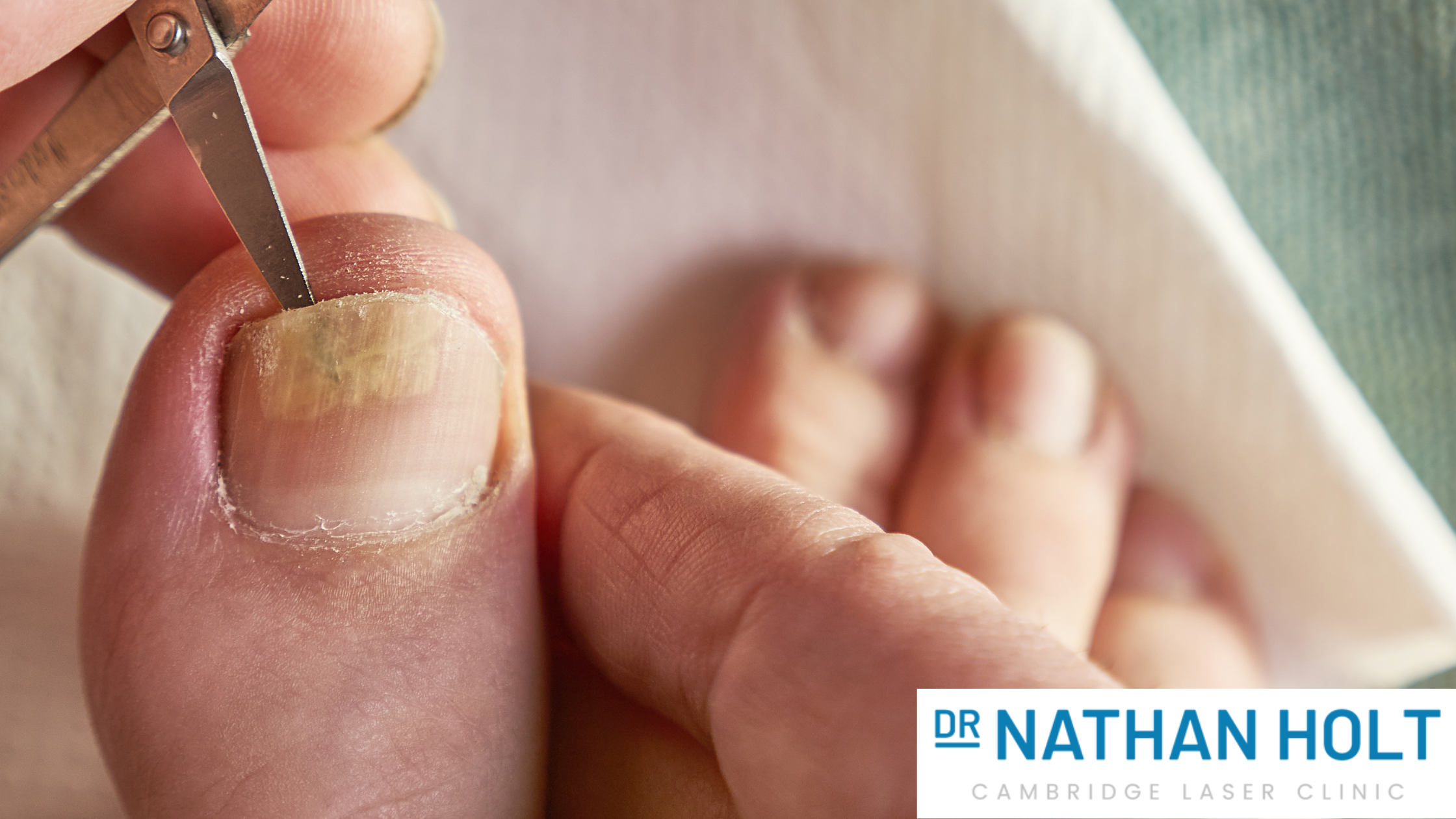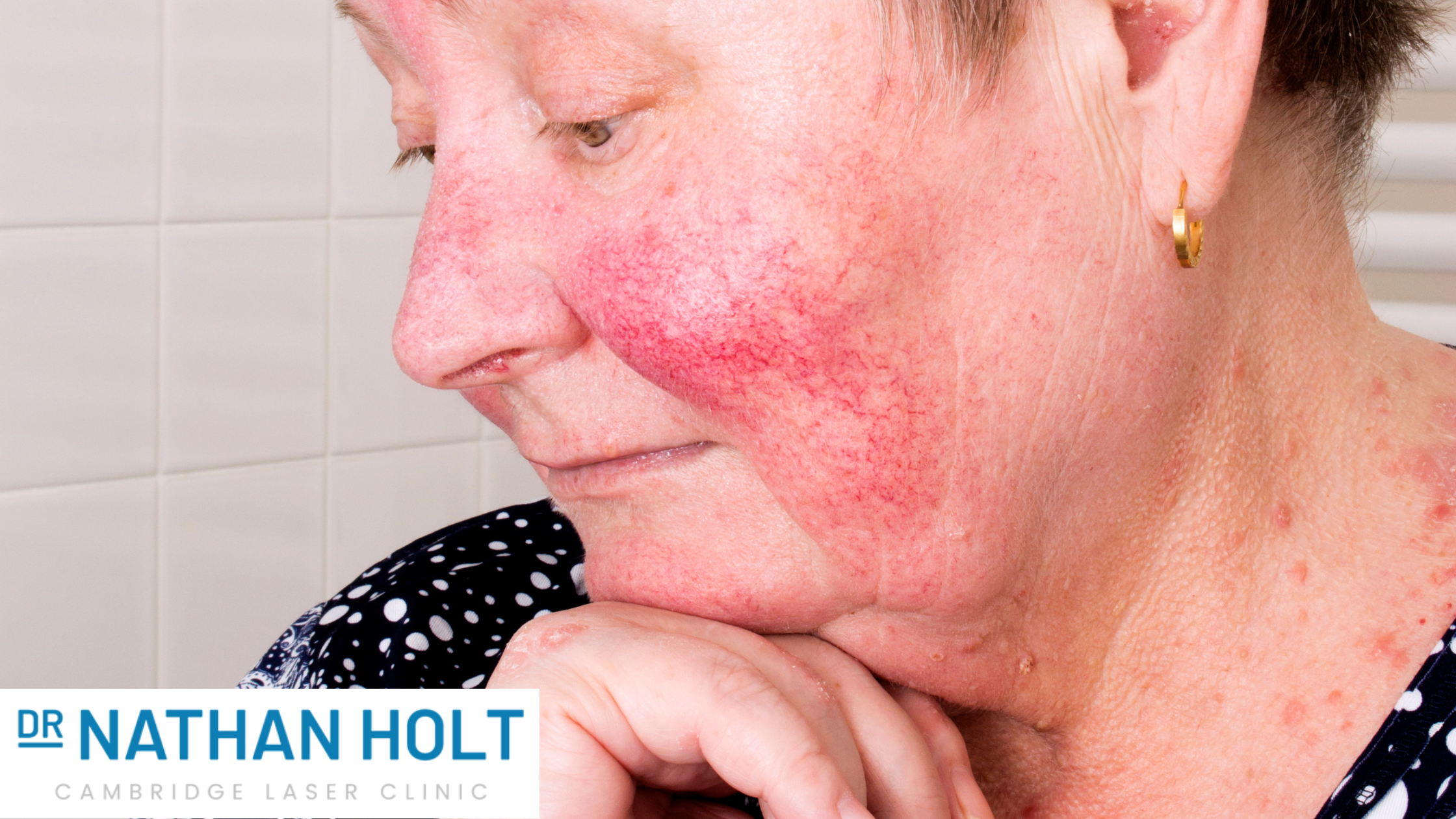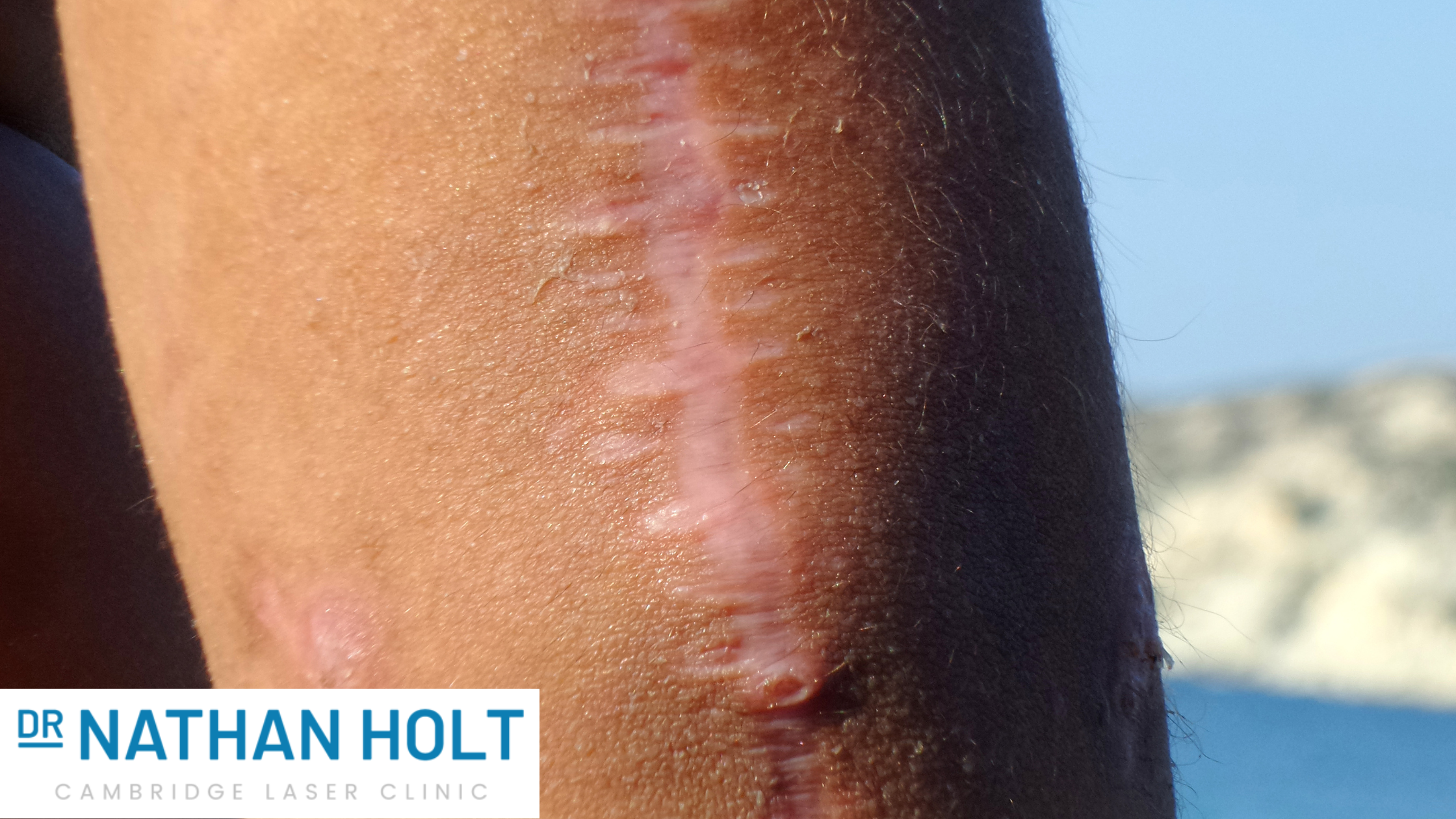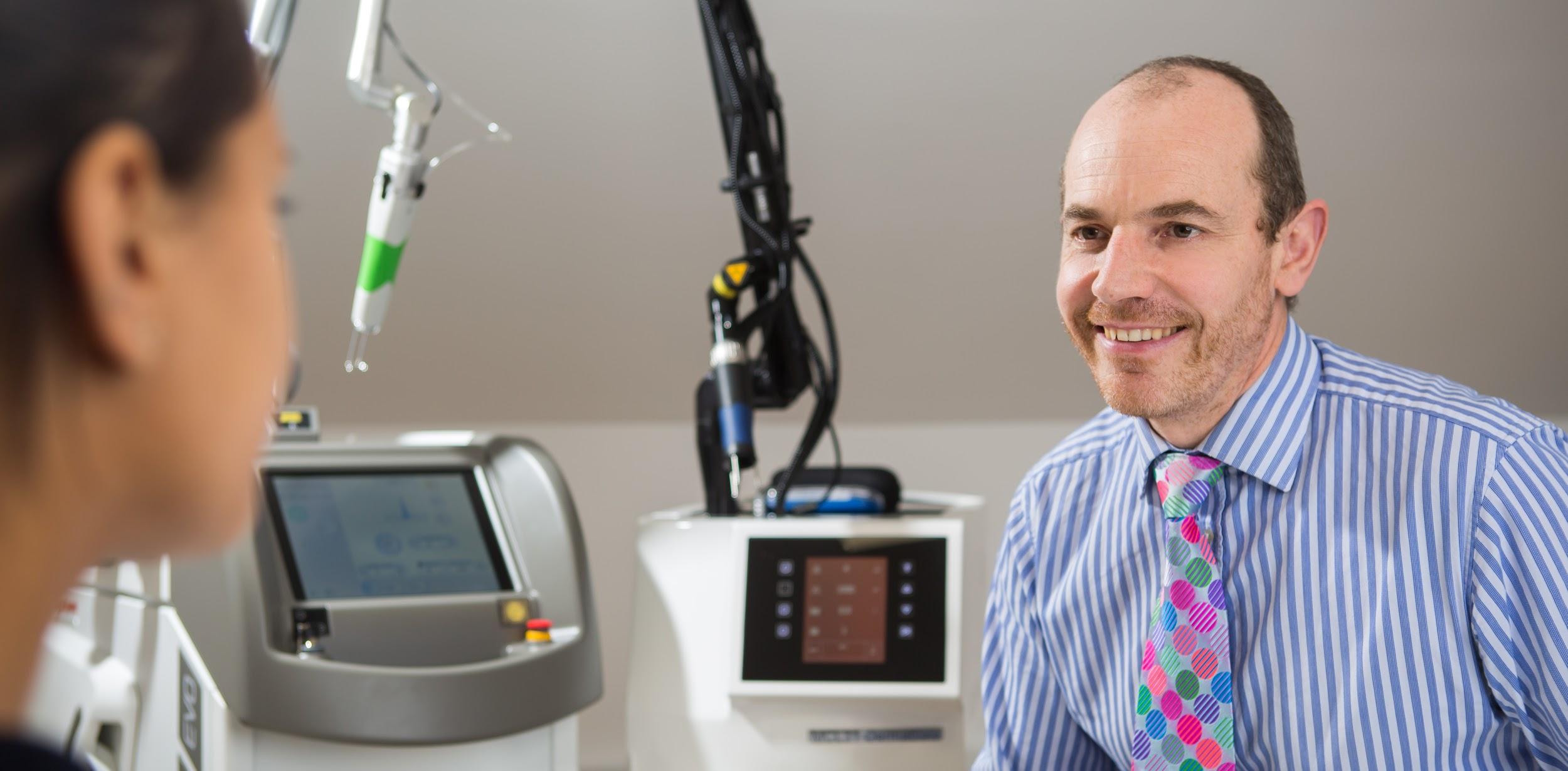April marked Rosacea Awareness Month, a time dedicated to spreading awareness about this chronic skin…

Fighting Fungal Nail Infections: Causes, Symptoms, and Treatment Options
Fungal nail infections, also known as onychomycosis, are a common condition that affects millions of people worldwide. While they may not always be serious, fungal nail infections can cause discomfort, embarrassment, and affect the appearance of the nails.
What Are Fungal Nail Infections?
Fungal nail infections occur when fungi, such as dermatophytes, yeast, or mould, invade the nails, causing an infection. These fungi thrive in warm, moist environments, making the nails, especially toenails, susceptible to infection. Fungal nail infections can affect one or more nails and may vary in severity from mild to severe.
How Do Fungal Nail Infections Occur?
Fungal nail infections can occur due to various factors, including:
- Direct contact with infected nails or contaminated surfaces, such as communal showers or swimming pools.
- Trauma to the nails, such as injury or repeated pressure.
- Wearing tight-fitting shoes or non-breathable footwear.
- Having a weakened immune system.
- Certain medical conditions, such as diabetes or psoriasis, which can increase the risk of fungal nail infections.
What Do Fungal Nail Infections Look Like?
The appearance of fungal nail infections can vary depending on the type of fungus involved and the severity of the infection. Common signs and symptoms include:
- Thickened, discoloured nails (usually yellow or brown)
- Brittle or crumbly nails
- Distorted or misshapen nails
- Nail lifting from the nail bed (onycholysis)
- White or yellow patches on the nails
- Foul odour from the affected nails
Best Treatment Options for Fungal Nail Infections:
Treatment for fungal nail infections depends on the severity of the infection and may include:
Topical antifungal medications: Over-the-counter or prescription-strength antifungal creams, lotions, or nail lacquers can be applied directly to the affected nails.
Oral antifungal medications: Prescription oral medications, such as terbinafine or itraconazole, may be recommended for more severe or stubborn infections.
Laser therapy: Advanced laser treatments, such as those offered at the Cambridge Laser Clinic, can effectively target and destroy the fungi responsible for the infection without damaging the surrounding tissue. Laser therapy is safe, non-invasive, and typically requires multiple sessions for optimal results.
At the Cambridge Laser Clinic, we offer state-of-the-art laser treatments for fungal nail infections using advanced technology and techniques. Our experienced doctor, Dr Nathan Holt offers free consultations and personalised care and support to help you achieve clear, healthy-looking nails. If you’re struggling with a fungal nail infection, don’t hesitate to schedule a consultation with us to explore your treatment options.



